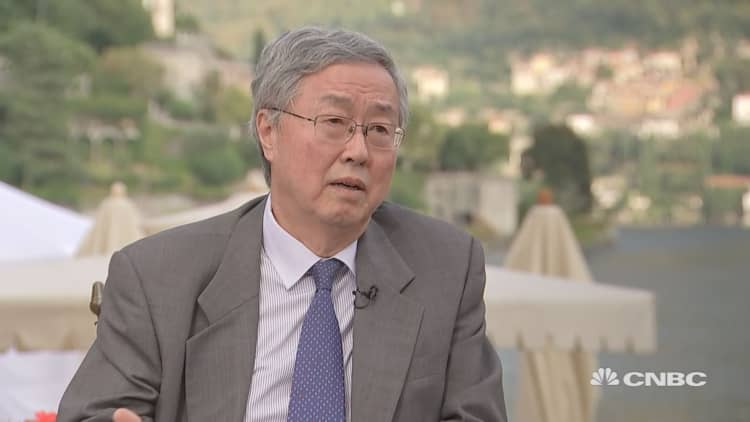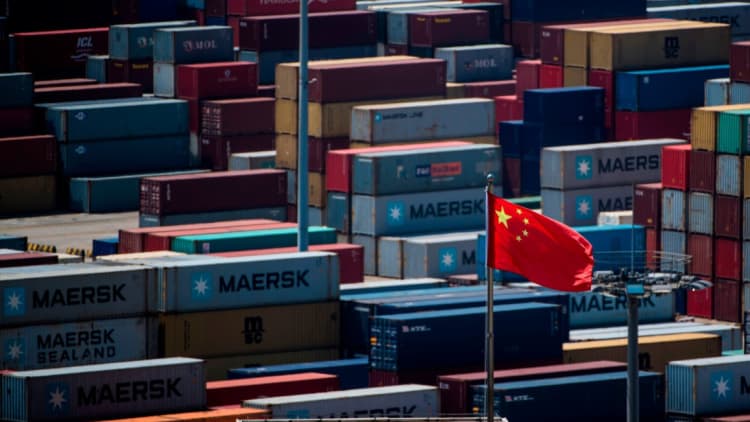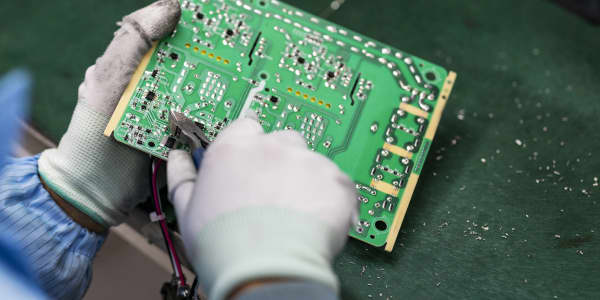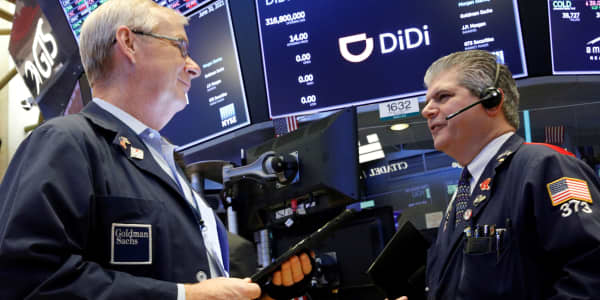Relations between China and the U.S. have the potential derail global economic growth, but the ongoing tariff fight is a political matter between U.S. President Donald Trump and Chinese President Xi Jinping, said a major Chinese private equity fund company.
Despite trade tensions between the two economic giants, there are plenty of reasons for them to work together in the longer term, said Duo Yuan, founder and chairman of Blue Stone Asset Management.
"Chinese and American people all want a good outcome. For the Chinese, we also hope that we can buy cheap U.S. products, have good American companies to cooperate with and learn new things from them. From the U.S. perspective, investing in China will bring good returns,“ Duo said on Wednesday at the East Tech West conference in the Nansha district of Guangzhou, China.
"So, there are mutual benefits in working together," said Duo, whose conversation in Chinese was translated by CNBC.
Duo is a veteran in the Chinese financial sector. He had a hand in founding the investment trading business at China International Capital Corporation, a leading Chinese investment bank, and Bank of China's fixed income business. His current firm, Blue Stone Asset Management, is one of the largest private equity fund companies in China, with assets under management in tens of billions yuan (billions of U.S. dollars).
The U.S. and China — the two largest economies in the world — have had a difficult relationship this year, with both countries imposing tariffs on the other's products. Trump and Xi are expected to discuss trade at the G-20 summit this week, and many have said they hope the meeting will help to calm tensions.
"The development on U.S.-China relations is something that everyone is watching very closely. But on a long term perspective, the U.S. and China will likely be on the same path," Duo said.

An area of potential cooperation is the development of financial markets. China still has a long way to go to build its financial sector, and the U.S. has lessons to offer.
Globally, the financial industry is dealing with the advent of technology — and area in which China has emerged as a leader, especially in mobile payments. Technology will make finance border-less, Duo said, and the opportunity for companies and countries to connect in the sector has increased.
China now allows more foreign buying of stocks and bonds on mainland markets, and it now lets non-Chinese financial institutions set up wholly-owned units in the country.
In the short term, there could be greater uncertainties in the Chinese financial markets and economy, Duo said. But the many moves by the People's Bank of China to loosen monetary policy are expected to improve credit conditions starting next year.
Duo, like many experts, said he expects Chinese economic growth to slow to around 6 percent in 2019.
"We're still quite confident about China's economy. From economic reforms and opening to monetary and fiscal measures, the government has been supportive," he said.
WATCH: How China manages its monetary policy







